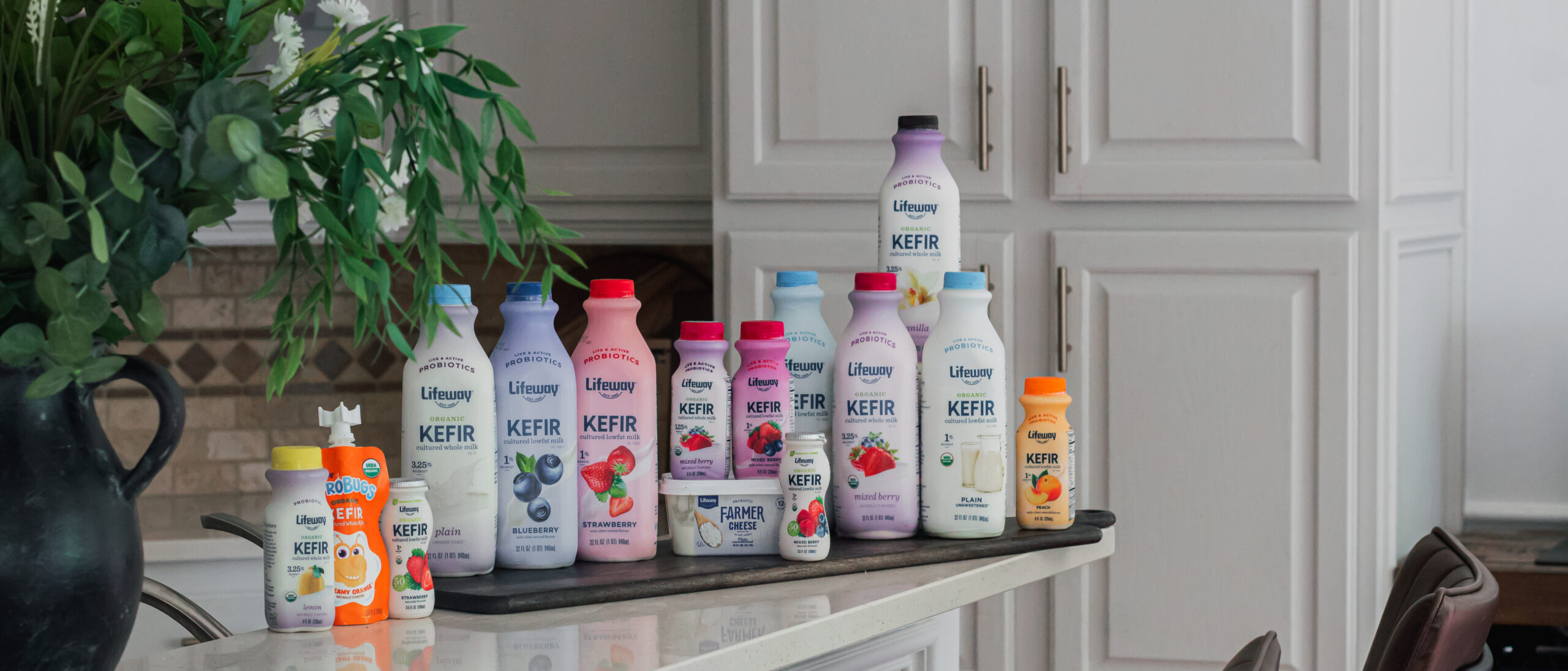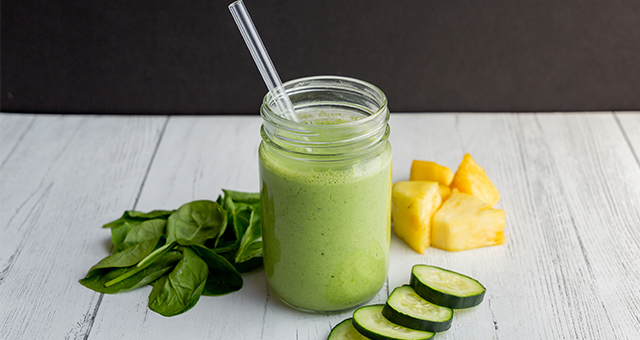You may have heard the saying, “You are what you eat,” but have you ever considered that what you eat could also impact your skin and hair? We are about to dive into the fascinating world of the gut-skin axis, an emerging field of research that reveals the intricate connection between gut health and skin radiance. In addition, we’ll also touch on how the amino acids in kefir support your hair, its growth, and overall hair health.
So sit back as we explore how the food we consume affects our gut microbiome, its influence on our skin’s health, and how our digestion affects how well we absorb the amino acids in food and its impact on our hair health. We’ll share practical steps to promote a glowing complexion and healthy hair from the inside out. Need proof? Even the stars are doing it! Check out how Margot Robbie prepared for her role as Barbie in the iconic film!
1. Understanding the Gut-Skin Axis
The gut-skin axis refers to the intricate relationship between our gut microbiome and our skin health. Our gut is home to trillions of microorganisms, collectively known as the gut microbiome. These microorganisms play a crucial role in digesting food, synthesizing vitamins, and supporting our immune system.
Recent research has unveiled a strong link between the gut microbiome and various skin conditions such as acne, eczema, psoriasis, and even premature aging. Imbalances in the gut microbiome can lead to systemic inflammation, which triggers skin inflammation and aggravates existing skin conditions.

2. The Impact of Diet on Gut Health
The food we consume significantly influences the composition and diversity of our gut microbiome. A diet rich in processed foods, sugars, and unhealthy fats can disrupt the balance of beneficial bacteria in the gut, leading to dysbiosis (an imbalance of gut microorganisms). On the other hand, a diet abundant in fruits and vegetables high in antioxidants, lean protein for essential amino acids, healthy fats found in olive oils, nuts, seeds, and fish, and feeding our gut microbiome with fiber and fermented foods, such as kefir, promotes a diverse and thriving gut microbiome.
Additionally, certain foods can directly trigger skin inflammation. Diets with high-glycemic-index foods and highly processed foods, fried foods, and foods rich in unhealthy fats have been linked to increased acne breakouts and other skin issues. On the contrary, foods rich in antioxidants, omega-3 fatty acids, and probiotics have shown promise in promoting healthy, glowing skin.
3. Breaking Down Probiotics and Prebiotics: The Skin’s Best Friends
Probiotics are live beneficial bacteria that support gut health when consumed, while prebiotics are non-digestible fibers that act as food for these friendly bacteria. Together, they form a powerful duo in promoting gut health and, in turn, skin health.
Incorporating probiotic-rich foods like Lifeway Kefir, sauerkraut, and kimchi into your diet can boost the diversity of your gut microbiome. At the same time, consuming prebiotic-rich foods like garlic, onions, bananas, and asparagus nourishes these beneficial bacteria and helps them thrive.
4. Hydration and Its Impact on Skin
While the focus is often on what we eat, we must not forget the significance of hydration for our skin. Water plays a vital role in flushing out toxins from the body and maintaining skin elasticity. Proper hydration can also prevent skin dryness and dullness.
Incorporate herbal teas, infused water, and hydrating foods like watermelon, cucumber, and oranges into your daily routine to keep your skin glowing and healthy.

5. Adopting a Holistic Approach to Skin Care
While nurturing your gut health is vital, it’s equally important to adopt a holistic approach to skincare. Avoid harsh chemical-laden products that can disrupt the skin’s natural balance and opt for gentle, natural skincare products. Additionally, practicing stress-reducing techniques like meditation and yoga can positively impact both gut and skin health. Try our Lifeway Kefir face masks for naturally glowing skin.

6. How Your Digestion Impacts Hair: Amino Acids, Protein, and More
Your digestion capability and the overall health of your microbiome also impact hair health, growth, and maintenance of healthy locks. You may have heard how ingesting protein in various forms can help your hair grow, but remember, you can only benefit from what you digest. It’s vital to have a healthy microbiome in order to achieve optimal digestion so you can benefit from those amino acids you’re eating, a.k.a protein. It’s important to remember that amino acids are the building blocks of protein. For our bodies to have the easiest access to digestible proteins, eating complete proteins that have all the essential amino acids can help you achieve better digestion of the protein. That way, your body doesn’t have to work harder to put the amino acids together one by one and make a complete protein itself. When our bodies digest protein, it uses the amino acids found in various protein to build healthy hair and maintain strong, growing locks.
When it comes to kefir, you’re in luck. Because Lifeway kefir contains a wide range of billions of probiotics, it naturally aids in digestion and is a complete protein itself. That means you get the best of both worlds! The fermentation process of our kefir is also an excellent choice since it predigests the lactose making our kefir up to 99% lactose-free. Kefir is a great replacement for milk if you’re looking for a more digestible source of dairy protein. We all love Lifeway kefir for its incredible benefits for healthy hair and skin. Kefir also contains a range of naturally occurring vitamins and minerals important to hair growth, health, and maintenance, including several B vitamins, along with zinc and calcium.

Conclusion
The gut-skin axis is an exciting and growing area of research that sheds light on the profound influence of our gut microbiome on skin and hair health. By adopting a gut-friendly diet, incorporating probiotics and prebiotics, staying hydrated, and adopting a holistic approach to skincare, you can unlock the secret to radiant, glowing skin from the inside out.
Remember, a healthy gut means a happy, healthier you, so embrace a lifestyle that nourishes both your hair and your skin! Grab a bottle of Lifeway Kefir to kick-start your gut and skin health journey.
Our Favorite Recipes for Healthy Hair and Skin:

1. Inner Glow Collagen Inducer